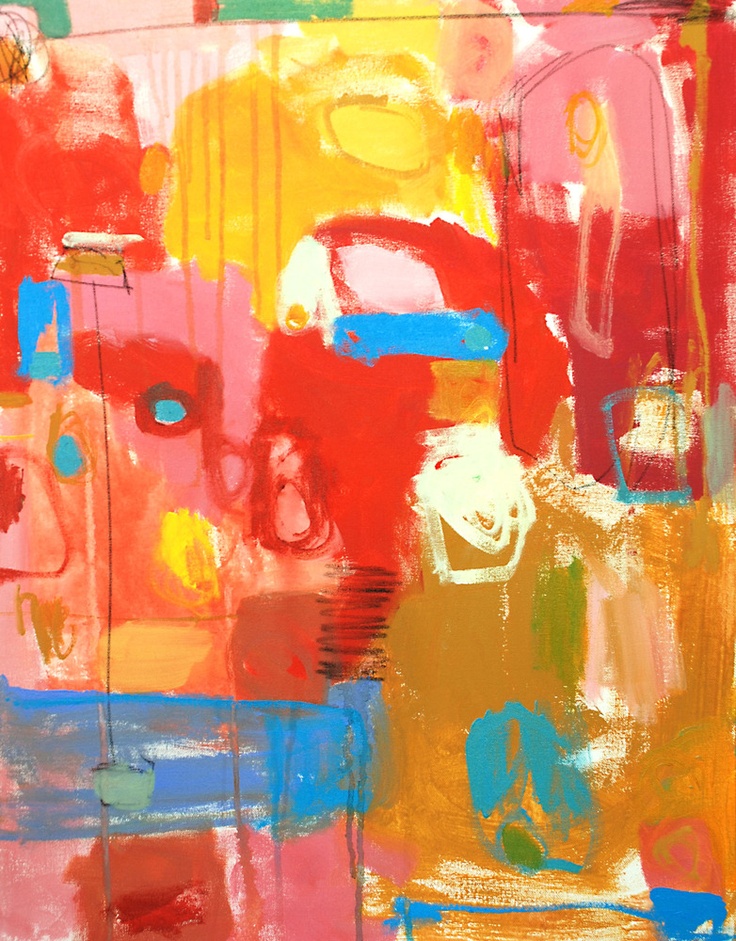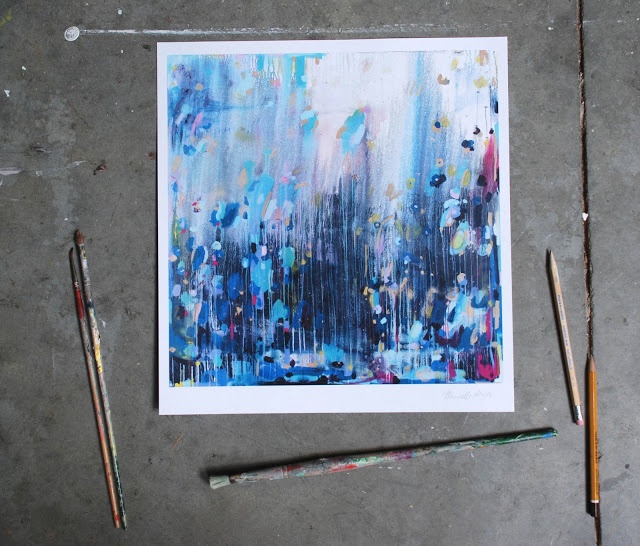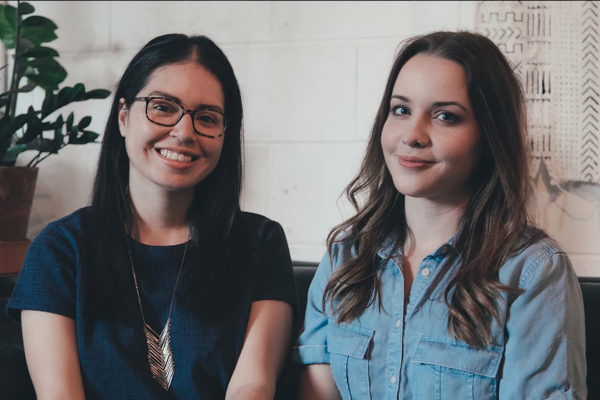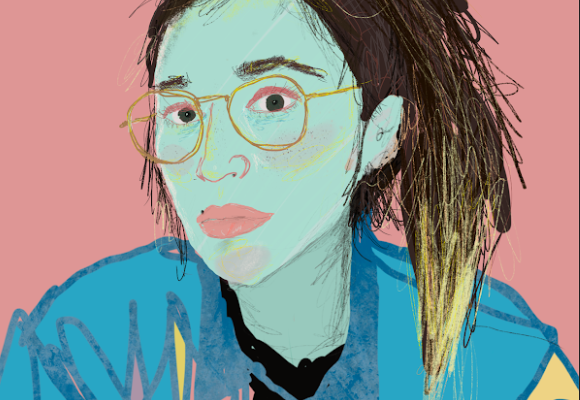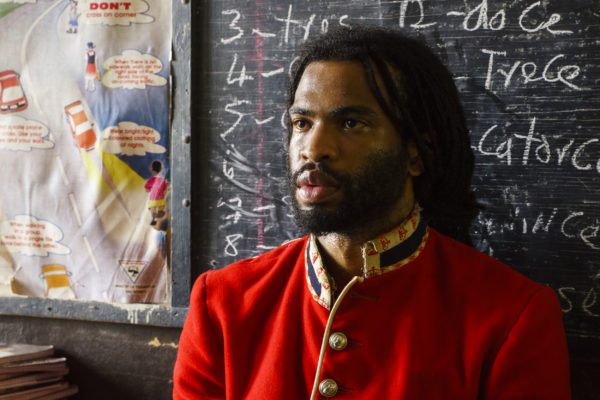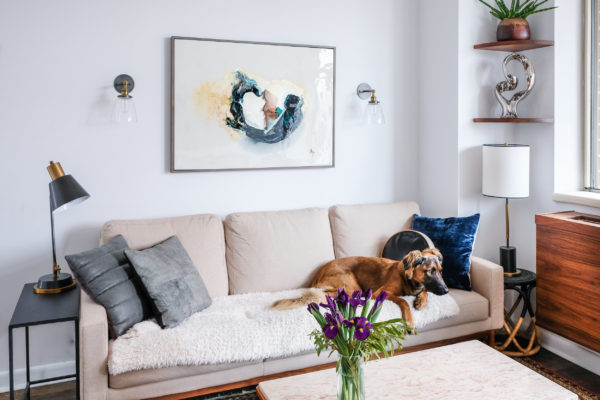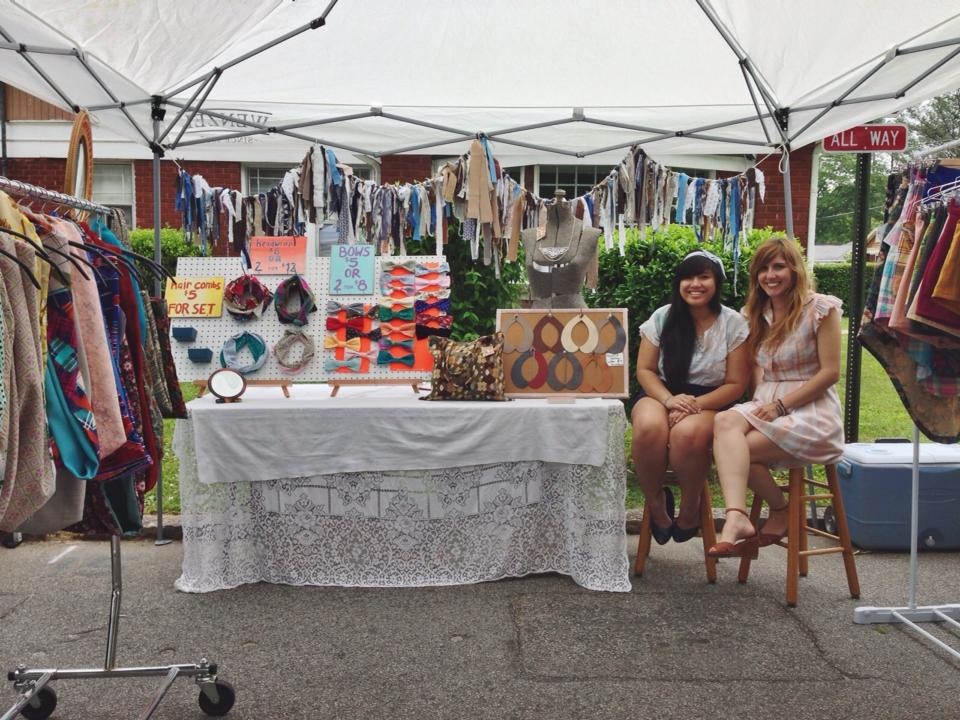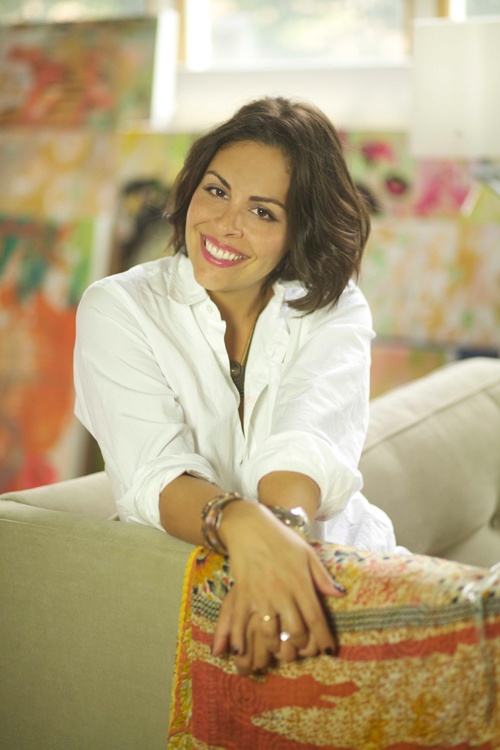 For roughly 30 hours a week in a Decatur studio just three miles down the road from her home, artist Michelle Armas is in her “happy place.” A former corporate branding specialist, Armas began painting a few years ago to deal with the stress of her job. After moving from NYC to Atlanta and transitioning into painting fulltime, she now runs her own shop, licenses her art to retailers and is represented by local gallery Gregg Irby Fine Art. Since recently overcoming a mysterious medical condition that was eventually diagnosed as a crippling food allergy, Armas is poised to make 2014 her most successful year yet.
For roughly 30 hours a week in a Decatur studio just three miles down the road from her home, artist Michelle Armas is in her “happy place.” A former corporate branding specialist, Armas began painting a few years ago to deal with the stress of her job. After moving from NYC to Atlanta and transitioning into painting fulltime, she now runs her own shop, licenses her art to retailers and is represented by local gallery Gregg Irby Fine Art. Since recently overcoming a mysterious medical condition that was eventually diagnosed as a crippling food allergy, Armas is poised to make 2014 her most successful year yet.
We talked to Armas about self-promotion, advice for becoming a successful artist and what she loves about ATL.
CommonCreativ: Where are you based?
Michelle Armas: I live in Kirkwood in on the eastside of Atlanta. We love living here for the beautiful historic homes, huge trees, artsy people and diversity. Not to mention the amazing food; it seems like every interesting idea gets hashed out on our side of town; and we love being surrounded by young people who are making things happen.
CC: You have an International Relations degree—did you want to be an artist when you were growing up?
MA: I have always been an artist; I just didn’t realize I could earn money that way. My family always told me that I was going to be an artist—I was the one who didn’t believe it. I thought maybe graphic design would be the best way to get into the art world, and still use my brain to strategize and “make the world a better place.” I have a graduate degree in graphic design and branding, and I really believe that without those two years of crazy hard work and intense learning, I wouldn’t be able to create at the level I am now.
CC: Earlier this year on your blog, you discussed some mysterious medical issues you’d been experiencing. Did art help you deal with that?
MA: Ah, yes, my poor body. It’s no longer a mystery to me what is ailing me, I finally have some answers and I am getting better every day. I have never been a person who is emotional about my art, or art in general, really. For me, composing is compunction—I do it all the time in my head. I have to do it. I need it like people need exercise or quiet time. Art makes me happy, and I need to have alone time to create and feel like a complete person.
CC: What does your artistic process look like?
MA: Lots of thinking, and then I get an idea for a color palette, and then blammo. Being an artist is mostly about observing. I get so much visual stimulation every day, it’s crazy. When it’s time to work I need music, a tidy space, clean brushes and all my paints in front of me. I feel like I’m cheating if I use a color from the tube—I always make my own. I mix and play and then, when I decide what color will be next to what color, I go.
CC: How did you develop your style?
MA: Repetition—I learned that in school. We would have to make a logo, so we would start with 100 thumbnails, then take 50 of those and make 50 more from them, then 25 more, then 10, then 5. By the end of it, you’ve made a bazillion drawings and logos, and you hashed out every single problem you could have and honed the idea down so much that the true idea finally comes out. The simplest idea that seems so easy takes a long time to get to. I painted all the time, experimenting and painting over and over and over the stuff that didn’t work.
CC: How do you promote your art?
MA: I have a blog, Instagram, Twitter, website and a Facebook page—[I’m] just being myself and letting my personality shine through all of those portals to people. That stuff is secondary to me. I like to make relationships with people, even if I don’t meet them in person. That’s the key to getting your work out there: Pretend the Internet is a giant house party, and you want to meet all the cool people. Reach out; say hello; don’t be needy; don’t ask for help; just be with them and observe. Then it evolves from there.
CC: As someone repped by a gallery, what does representation entail for an artist?
MA: I learned about Gregg through [Portland, Ore. artist] Jessica Swift. Then I learned how to work with a gallery from Gregg. She had a lot of patience with me because I was totally ignorant about how it works and the rules (so many rules!), and I was making things happen for myself already by that time, so I had become very averse to collaboration. Gregg is a great, genuine person, and I really just like her a lot, so that’s the main reason I work with her. I create paintings specifically for her, and she sells them for me, does all the promotion and deals with all customer stuff (questions, coming to visit, collecting payment, everything). For all of this, she collects 50 percent of the retail sale value of the painting. This means that my pricing has to be consistent with her pricing (I can’t and would never undercut her) and I don’t scan the paintings that I make for her, so I don’t create reproductions of them. I also work with Stellars Gallery in Ponte Vedra, Fla., and The Drawing Room in Connecticut.
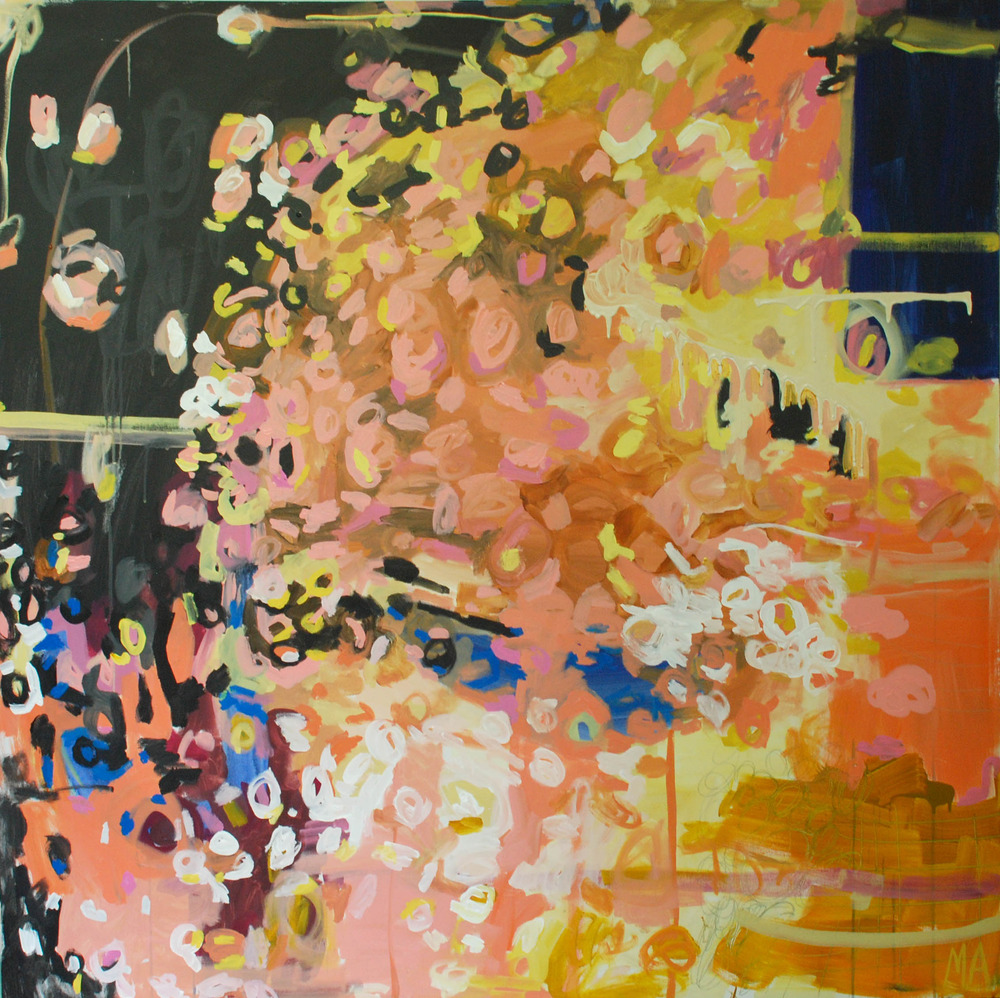 |
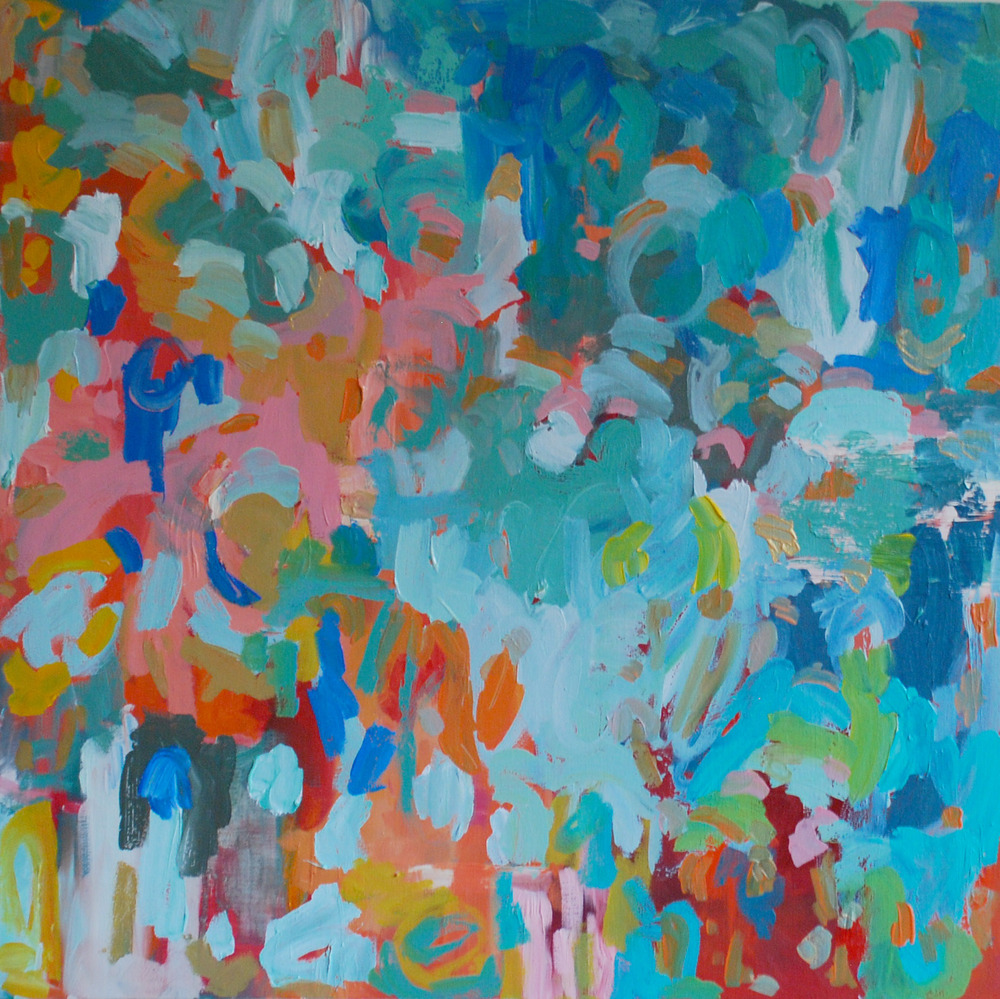 |
CC: What advice would you give to those wanting to make a successful career with their art?
MA: Create art all the time. Just do it again and again and again. Remember that it’s OK if what you create just sucks to your own eyes. You will get there, but you have to keep going. Do you really think that the people you admire just woke up one day and knew exactly how to create the masterpieces that you love to look at? No! They made a lot of shitty stuff first, and you have to, also.
2. Get over yourself. Seriously. If you are scared to show your work to anyone, you need to change your perspective. Be thankful that you are free to make whatever you want and show it! Remember that no cares about what you’re making as much as you care. Also, be less judgmental—you will feel better. It’s like magic.
3. Create relationships. Don’t email a bunch of people who do what you do and ask a bunch of questions. Reach out to them and, if you’re a good fit, you may just become friends. Have as many people in your life as you can who are creating the life they want for themselves, and doing what you want to do. Surround yourself with other people who you admire.
CC: What do you think about the art scene in Atlanta?
MA: It’s really fun to live in a city that is so rapidly evolving and growing up. I don’t really think about the art scene at all, I just appreciate that Atlanta is such an easy place to live (compared to New York or L.A.). I love how easy it is to meet people and how many new things are always happening. I like being a part of it; I like just being able to do my own thing here. A lot of things make me want to move away from Atlanta, but just as many things make me happy to live here.
CC: Do you have any special projects on the horizon?
MA: Yes. I am going to finally feel better, and I’ll be collaborating with the universe to gain my strength back and nurture the relationships that have suffered while I have been so freaking sick. On the horizon, there is more time to paint and explore with my work, and more moments of quiet reflection with my painting.
CC: Why do you make art?
MA: Why not?

